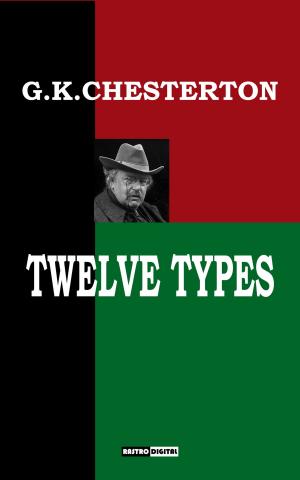Ecce Homo
Nonfiction, Religion & Spirituality, Philosophy, History, Criticism, & Surveys, Religious, Ethics & Moral Philosophy| Author: | Friedrich Nietzsche | ISBN: | 1230003192634 |
| Publisher: | Rastro Books | Publication: | April 18, 2019 |
| Imprint: | Language: | English |
| Author: | Friedrich Nietzsche |
| ISBN: | 1230003192634 |
| Publisher: | Rastro Books |
| Publication: | April 18, 2019 |
| Imprint: | |
| Language: | English |
'Ecce Homo: How One Becomes What One Is', is the last original book written by philosopher Friedrich Nietzsche before his final years of insanity that lasted until his death in 1900. It was written in 1888 and was not published until 1908.
According to one of Nietzsche's most prominent English translators, Walter Kaufmann, the book offers "Nietzsche's own interpretation of his development, his works, and his significance." The book contains several chapters with self-laudatory titles, such as "Why I Am So Wise", "Why I Am So Clever", "Why I Write Such Good Books" and "Why I Am a Destiny". Walter Kaufmann, in his biography Nietzsche: Philosopher, Psychologist, Antichrist noticed the internal parallels, in form and language, to Plato's Apologywhich documented the Trial of Socrates. In effect, Nietzsche was putting himself on trial with this work, and his sardonic judgments and chapter headings can be seen as mordant, mocking, self-deprecating, or sly.
'Ecce Homo: How One Becomes What One Is', is the last original book written by philosopher Friedrich Nietzsche before his final years of insanity that lasted until his death in 1900. It was written in 1888 and was not published until 1908.
According to one of Nietzsche's most prominent English translators, Walter Kaufmann, the book offers "Nietzsche's own interpretation of his development, his works, and his significance." The book contains several chapters with self-laudatory titles, such as "Why I Am So Wise", "Why I Am So Clever", "Why I Write Such Good Books" and "Why I Am a Destiny". Walter Kaufmann, in his biography Nietzsche: Philosopher, Psychologist, Antichrist noticed the internal parallels, in form and language, to Plato's Apologywhich documented the Trial of Socrates. In effect, Nietzsche was putting himself on trial with this work, and his sardonic judgments and chapter headings can be seen as mordant, mocking, self-deprecating, or sly.















